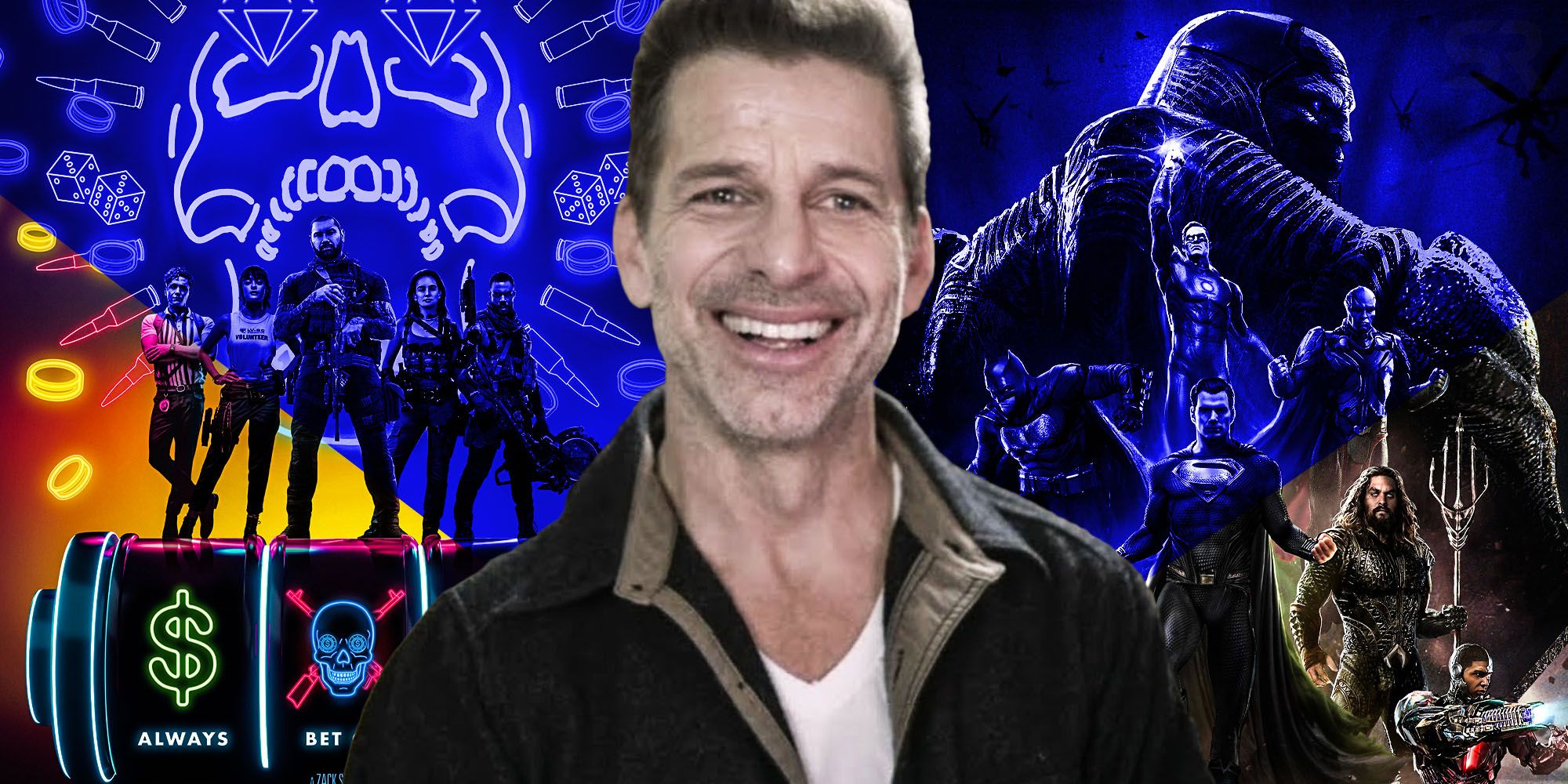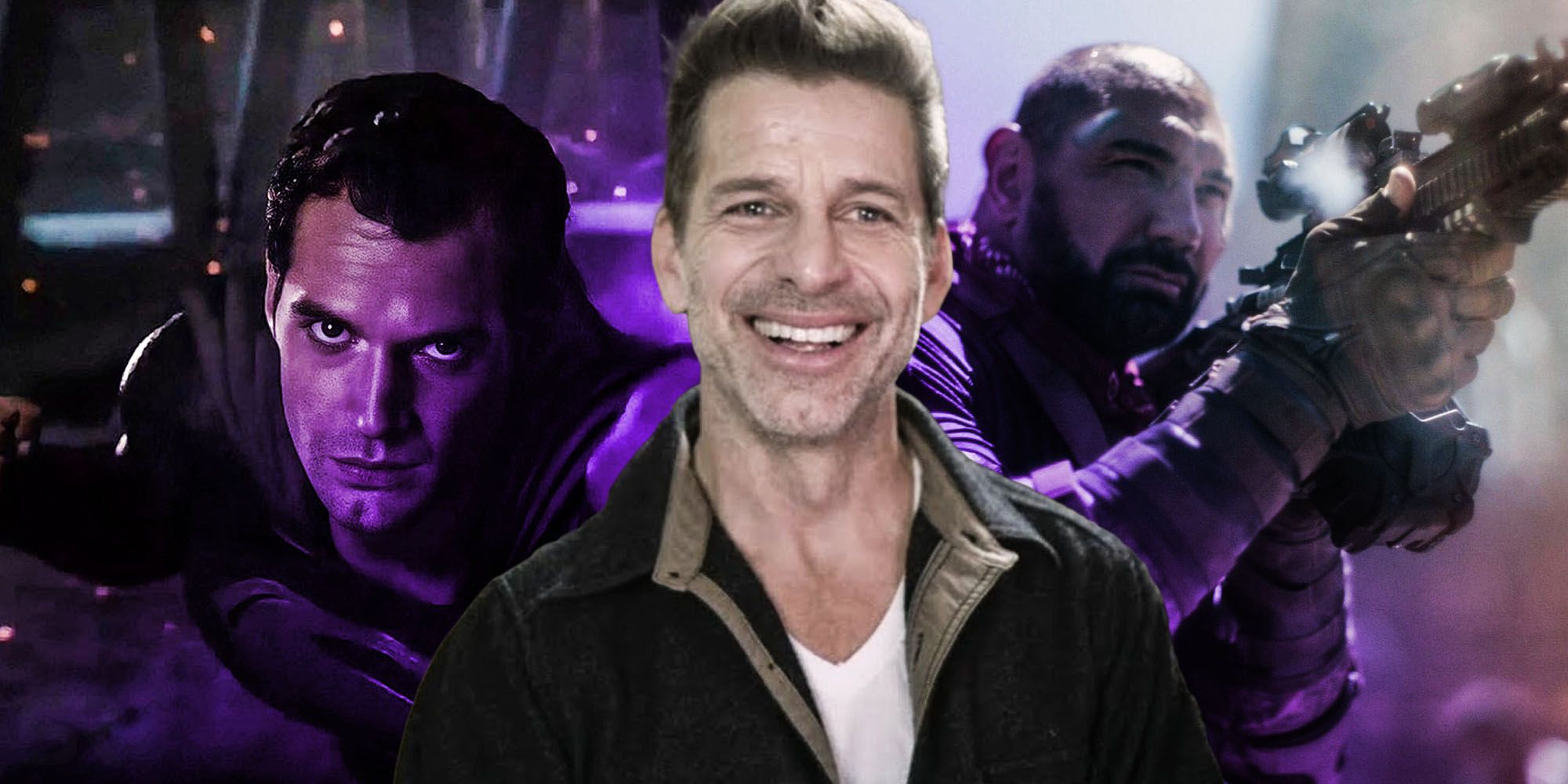
Embattled Justice League director Zack Snyder recently earned the best reviews he has received in years for Army of the Dead, but why is it that the divisive helmer excels in this genre and split audiences elsewhere? The recent Netflix hit Army of the Dead is director Zack Snyder’s first foray into zombie horror since his George A Romero remake Dawn of the Dead, and the movie has earned the filmmaker some of the best critical write-ups he has received since that action-horror's 2004 release.
Despite Snyder directing Watchmen, 300, Man of Steel, Sucker Punch, and the contentious Justice League in the years since Dawn of the Dead arrived in cinemas, the director has struggled to match the critical acclaim that his Romero remake enjoyed. The critical success of the Netflix release is good news for Snyder’s ambitious Army of the Dead universe plans, but the positive write-ups have also led some film fans to wonder why Snyder seems so adept at bringing audiences and critics together with zombie horror when his work proves divisive in other genres.
Two potential reasons that could answer this inquiry are that Snyder has a talent for staging inventive gore - something that his choice of comic book adaptations is not ideally suited to - and that he excels at establishing strong archetypical characters who are trapped in simple, compelling scenarios, another strong suit that his (non-zombie) films rarely make use of. For example, the convoluted plot of Sucker Punch requires layers of dreams and nested realities to be untangled, while the story of 300 requires significant swathes of (not particularly accurate) historical context. In contrast, the only explanation needed to understand the plot of Army of the Dead is why money matters after the apocalypse. The issue of gore, meanwhile, is partially a problem due to comic adaptations aiming at larger audiences, but also an issue of whether Snyder’s aesthetically appealing violence fits the story.

For example, both Dawn of the Dead and Army of the Dead feature some inventively gruesome zombie kills, but neither movie claims to be a grand philosophical treatise on morality or humanity. They are gory, fun horror movies, with James Gunn’s blackly comic script and a heist plot lightening the two movie’s tones respectively. Watchmen, in contrast, is one of author Alan Moore’s most morally ambiguous and infamously complex works (alongside Jerusalem). As such, the movie staging many self-consciously cool, slow-motion kills contradicts the source material’s more nuanced take on violence and the role it plays in society. Army of the Dead’s many zombies and moments of memorable gore make the story more exciting and satisfying, whereas Watchmen's bloody moments muddy its message.
Meanwhile, the thinly-sketched characters of Army of the Dead and Dawn of the Dead are appropriately fleshed out as far as zombie movie characters go. They are broad, archetypical figures, perfect for a story where anyone can die with little warning. Viewers don’t need to know the heroine of Dawn of the Dead’s life story to understand her terror when her bloodthirsty zombified daughter tears out her husband’s jugular. In contrast, the deluge of superhero movies and television series in recent years means viewers want more morally complex comic books adaptations, and rounded character is more central to the appeal of Batman and company than ever before. The uncomplicated heroics of Snyder’s Superman won’t fly for many audiences in an era when the MCU has made superheroes self-aware, and The Boys has satirized the MCU in turn, and so on, rendering the sub-genre more and more complex and layered. However, simple characters will always be welcome in zombie horror which, along with the subgenera’s taste for stylish violence, may explain why Army of the Dead helmer Zack Snyder finds continuing success in the sub-genre.
from ScreenRant - Feed https://ift.tt/3wOUlAN

No comments: